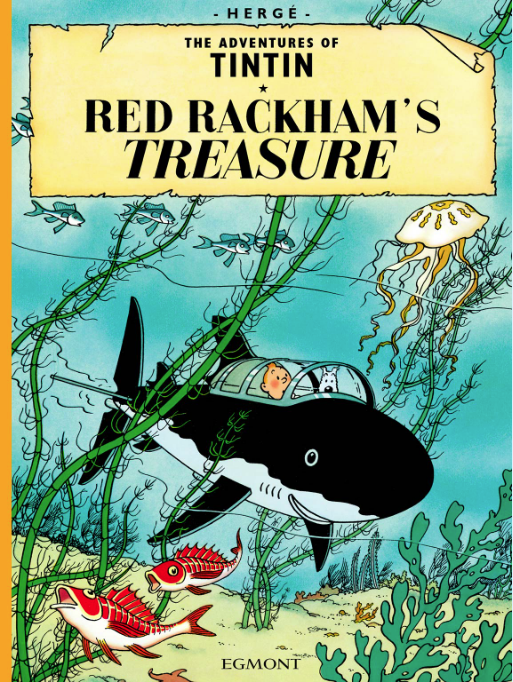

Tintin himself can sometimes verge on being too much of a goody-goody, which is what makes the irascible Capt. Haddock such a perfect foil. But page five of Red Rackham’s Treasure introduces another lynchpin character to the Tintin fold, the inimitable Professor Cuthbert Calculus.
Presenting himself to Haddock and Tintin after Haddock sees off a string of Rackham’s self-proclaimed heirs, Calculus’ deafness provides not only great comedy, but the opportunity for him to insert himself into the saga despite our heroic duo’s every effort to put him off. There’s something heart-warmingly lovely about his irrepressibly dotty absent-minded positivity.
Setting out to sea in the Sirius, (a different looking version – better researched and realised – of Haddock’s salty sea-dog pal Chester Thompson’s ship, previously seen in The Shooting Star) Tintin, Haddock & co, inc. those dozy dolts Thompson and Thomson, set out to locate the island, the wreck of the Unicorn, and the treasure itself, as indicated in the three scroll parchments found in The Secret of the Unicorn.
Without giving away the twists and turns, suffice it do say that the story doesn’t disappoint, delivering adventure and fun in equally well judged measures. Some highlights include: when things go awry for the Thomsons, such as when they chew quids of tobacco in an ill-fated attempt to blend in with the crew of the Sirius, or their misadventures operating the pumping station fo the old-fashioned diving apparatus; Calculus demonstrating his inventions (one frame on page eight in particular always has me in stitches); and Haddock, as he sits down in his diving suit after a vintage rum fuelled dive, sans helmet.
Having first appeared, in The Crab With The Golden Claws, as a drunken sot, more an annoying liability than a dependable sidekick, Haddock has now evolved into the more complementary ‘yin’ to Tintin’s ‘yang’. Red Rackham’s Treasure is also, literally as well as metaphorically, the ‘making’ of Capt. Haddock, because it’s the adventure in which, without spoiling it for new readers, Haddock gets properly set up, in the happier sense of that phrase. By adventure’s end, they really can all reflect that ‘all’s well that ends well’.
A great continuation and ending to a classic double-bill, from the heyday of Tintin. This pair was one of my early encounters with the whole Tintin experience, and a very happy one too. I loved them, just as I still love it now. So, I’d definitely recommend these adventures as an ideal place for newbies to start.
